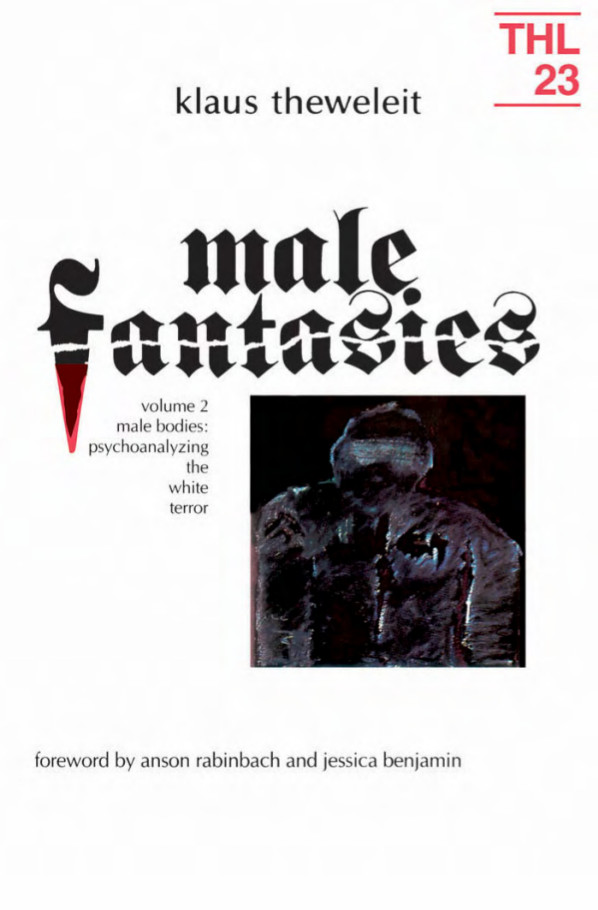Jeffrey Herf: Reactionary Modernism: Technology, Culture, and Politics in Weimar and the Third Reich (1985)
Filed under book | Tags: · engineering, enlightenment, fascism, germany, marxism, modernism, national socialism, nationalism, nazism, politics, romanticism, technology, weimar republic

“In a unique application of critical theory to the study of the role of ideology in politics, Jeffrey Herf explores the paradox inherent in the German fascists’ rejection of the rationalism of the Enlightenment while fully embracing modern technology. He documents evidence of a cultural tradition he calls ‘reactionary modernism’ found in the writings of German engineers and of the major intellectuals of the Weimar right: Ernst Juenger, Oswald Spengler, Werner Sombart, Hans Freyer, Carl Schmitt, and Martin Heidegger. The book shows how German nationalism and later National Socialism created what Joseph Goebbels, Hitler’s propaganda minister, called the ‘steel-like romanticism of the twentieth century’. By associating technology with the Germans, rather than the Jews, with beautiful form rather than the formlessness of the market, and with a strong state rather than a predominance of economic values and institutions, these right-wing intellectuals reconciled Germany’s strength with its romantic soul and national identity.”
Publisher Cambridge University Press, 1985
ISBN 0521338336, 9780521338332
251 pages
Reviews: R.J. Overy (English Historical Review), Geoff Eley (Telos).
Commentary: Thomas Rohkraemer (Contemporary European History).
Klaus Theweleit: Male Fantasies, 2 vols. (1977-78/1987)
Filed under book | Tags: · fantasy, fascism, literature, men, military, nazism, psychoanalysis, sex, sociology, women


These two volumes center upon the fantasies that preoccupied a group of men who played a crucial role in the rise of Nazism. Theweleit draws upon the novels, letters, and autobiographies of these proto-fascists and their contemporaries, seeking out and reconstructing their images of women.
“Theweleit’s study of the fascist consciousness in general and the bodily experience of these former soldiers in particular, easily detected in their hatefilled, near-illiterate books, was well received. Theweleit used Wilhelm Reich, Gilles Deleuze and Félix Guattari for his basic theory, but also empirical research, especially of the leading German left-wing historian of Weimar unrest, his friend Erhard Lucas and he was always discussing his findings with his wife, who has professional clinical experience. Theweleit writes in an anti-academic, highly personal style.” (from Wikipedia)
Heavily illustrated with cartoons, advertisements, engravings, and posters of the era.
Volume 1: Women Floods Bodies History
Originally published as Männerphantasien, Bd 1: Frauen, Fluten, Körper, Geschichte, Roter Stern, 1977
Translated by Stephen Conway, in collaboration with Erica Carter and Chris Turner
Foreword by Barbara Ehrenreich
Publisher University of Minnesota Press, 1987
ISBN 0816614482
517 pages
Volume 2: Male Bodies: Psychoanalyzing the White Terror
Originally published as Männerphantasien, Bd 2: Männerkörper. Zur Psychoanalyse des Weißen Terrors, Roter Stern, 1978
Translated by Erica Carter and Chris Turner, in collaboration with Stephen Conway
Foreword by Anson Rabinbach and Jessica Benjamin
Publisher University of Minnesota Press, 1987
ISBN 0816614504
507 pages
wikipedia (in German)
publisher (Vol. 2)
google books (Vol. 1)
google books (Vol. 2)
Volume 1 (15 MB, updated on 2014-12-7)
Volume 2 (37 MB, updated on 2014-12-7)
Jean-Luc Nancy: Listening (2002/2007) [French/English]
Filed under book | Tags: · listening, mimesis, music, nazism, philosophy, philosophy of music, sound recording

In this lyrical meditation on listening, Jean-Luc Nancy examines sound in relation to the human body. How is listening different from hearing? What does listening entail? How does what is heard differ from what is seen? Can philosophy even address listening, couter, as opposed to entendre, which means both hearing and understanding?
Unlike the visual arts, sound produces effects that persist long after it has stopped. The body, Nancy says, is itself like an echo chamber, responding to music by inner vibrations as well as outer attentiveness. Since the ear has no eyelid (Quignard), sound cannot be blocked out or ignored: our whole being is involved in listening, just as it is involved in interpreting what it hears.The mystery of music and of its effects on the listener is subtly examined. Nancy’s skill as a philosopher is to bring the reader companionably along with him as he examines these fresh and vital questions; by the end of the book the reader feels as if listening very carefully to a person talking quietly, close to the ear.
French edition: À l’écoute
Publisher Éditions Galilée, Paris, 2002
ISBN 9782718605975
96 pages
English edition
Translated by Charlotte Mandell
Publisher Fordham University Press, New York, 2007
ISBN 0823227731, 9780823227730
85 pages
publisher (FR)
google books (EN)
PDF (French, no OCR)
PDF (English, EPUB)

